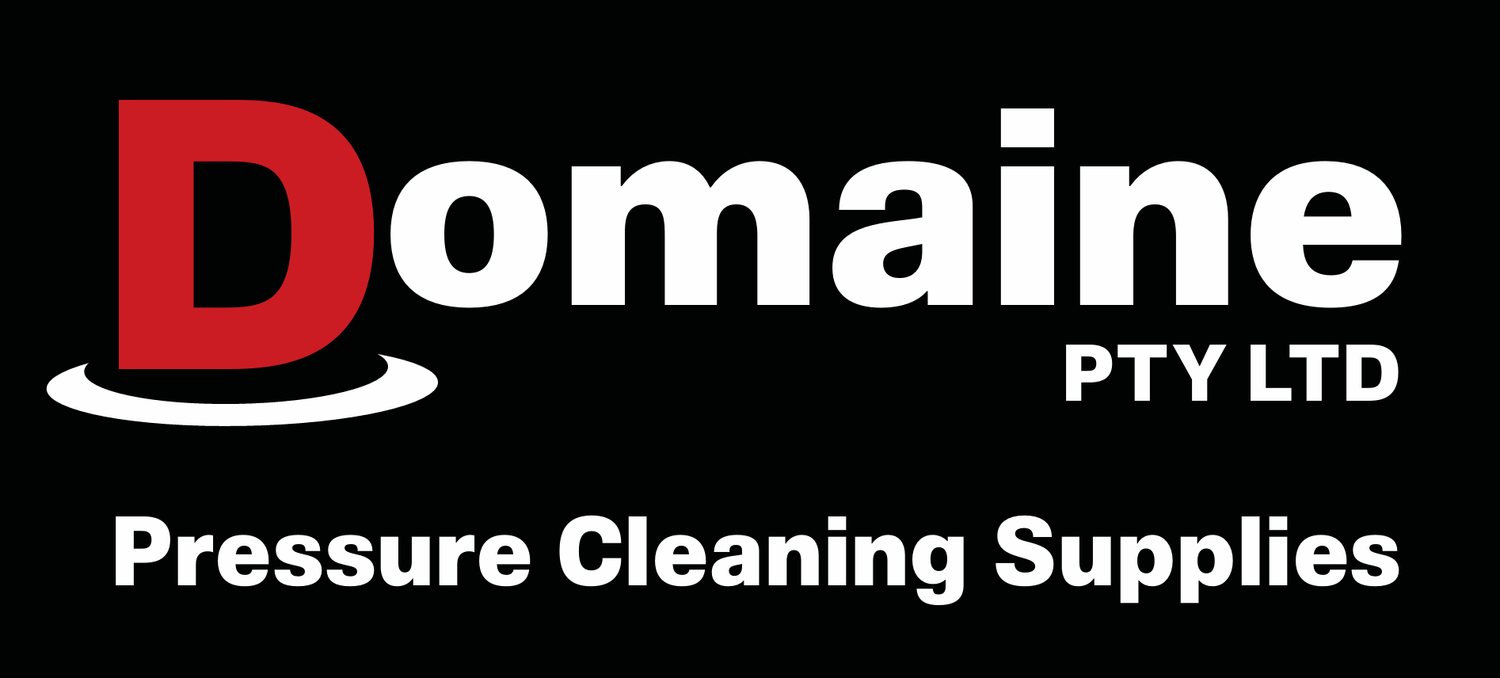
FAQs
-
What pressure cleaning supplies do tradies need for commercial cleaning jobs?
You need a range of professional pressure cleaning supplies to complete commercial and industrial cleaning jobs efficiently and safely. Essential equipment includes a high-pressure washer (min. 3000 PSI), turbo nozzles, surface cleaners, high-pressure hoses, hose reels, and chemical injectors. For soft washing, you'll need a low-pressure pump system, soft wash nozzles, and specialised detergents designed to break down organic matter like mould, algae, and mildew on delicate surfaces.
Accessories like extension lances, quick-connect fittings, and PPE are often required for professional use. Investing in heavy-duty, commercial-grade pressure washing equipment helps efficiently tackle a wide range of surfaces—from concrete driveways and industrial machinery to roofs and exterior facades.
Choosing the right pressure washing gear improves job performance and reduces downtime and equipment failure on-site. Whether you're in building maintenance, construction, landscaping, or mobile cleaning services, reliable equipment is critical for delivering top-quality results.
Pair your equipment with the correct pressure washing chemicals or soft wash solutions, depending on the surface and job type. Using the right combination of gear and cleaning agents ensures superior cleaning outcomes and long-term customer satisfaction.
-
What’s the difference between pressure washing and soft washing?
Pressure washing uses high-pressure water to blast away dirt, grime, oil stains, and mould from hard surfaces like concrete, brick, and metal. It's ideal for industrial and commercial cleaning tasks requiring aggressive surface restoration. In contrast, soft washing uses low-pressure water combined with specialised biodegradable detergents to clean delicate surfaces such as roofs, painted exteriors, siding, and timber without causing damage.
Both techniques require different equipment: pressure washers for hard surfaces and soft wash systems for sensitive materials. Choosing the correct method protects surfaces and ensures long-lasting, professional results. Many tradies carry both systems to meet a wide range of cleaning demands.
-
Can I use a domestic pressure washer for trade or commercial work?
No, domestic pressure washers are not suitable for commercial or industrial cleaning jobs. They are built for occasional, light-duty use and often lack the pressure, water flow (LPM), and durability required for professional and efficient results.
Invest in commercial-grade pressure cleaning equipment, typically rated at 3000+ PSI and 13+ LPM. These machines are designed for frequent use, long operating hours, and tough conditions found on job sites. Professional units also support a wide range of accessories like turbo nozzles, surface cleaners, and chemical injectors for enhanced performance.
-
Which detergents should I use for soft washing or pressure cleaning?
Choosing the right cleaning detergent is essential for effective and safe pressure or soft washing. For pressure washing, use high-performance degreasers, mould removers, or concrete cleaners depending on the surface—especially for oil stains, graffiti, or built-up dirt on concrete and brick.
For soft washing, opt for specially formulated solutions that safely kill algae, lichen, moss, and mildew on roofs, render, weatherboards, and painted surfaces. These detergents are typically biodegradable and plant-safe, yet powerful enough to deliver long-lasting results.
Always match your detergent to the surface and the cleaning method for the best outcome. Using professional-grade pressure cleaning chemicals can dramatically improve efficiency and customer satisfaction.
-
What size pressure washer do I need for commercial cleaning jobs?
For most commercial jobs, a pressure washer with a minimum of 3000 PSI and 13+ LPM (litres per minute) is recommended. Higher PSI helps break down tough grime, while higher LPM improves efficiency by covering more surface area quickly.
Large industrial cleaning tasks—like construction sites, warehouse floors, or heavy equipment—may require units up to 4000 PSI and 21+ LPM. On the other hand, smaller commercial jobs, like driveway cleaning or exterior walls, may require less power but still demand durable, reliable machines.
Overall, the larger the machine, the more efficient it is, regardless of the size of the job. Remember: time is money!
Always match the machine specifications to the job type and surface to avoid underperformance or surface damage. Using commercial-grade pressure washers built for trade use ensures consistent, professional results.
-
How do I maintain pressure cleaning equipment for long-term use?
Regular maintenance of your pressure cleaning equipment is key to performance and longevity. After every use, flush the system to remove leftover detergent and debris. Inspect hoses, nozzles, and connections for leaks or blockages. Check and change engine oil, clean or replace filters, and monitor pump seals.
Use only high-quality parts and follow the manufacturer’s maintenance schedule to prevent breakdowns on the job. Store equipment in a dry, covered area to protect it from the elements. Proper care of pressure washers, soft wash pumps, and cleaning accessories extends their life and keeps your business running efficiently.
